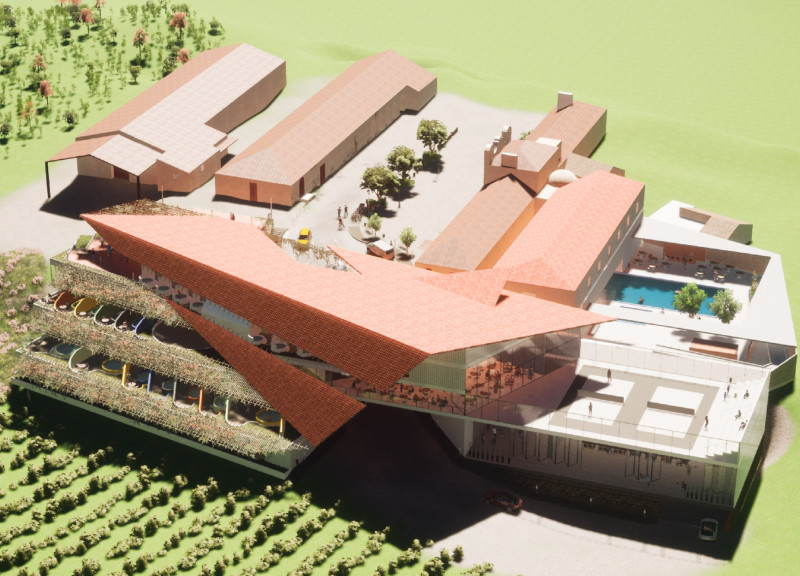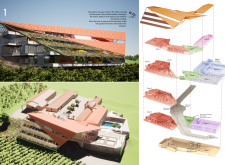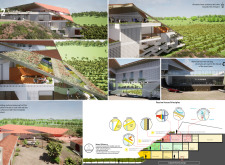5 key facts about this project
The hotel is set within a beautiful vineyard, combining the natural environment with a contemporary design that promotes a pleasant visitor experience. The overall concept focuses on sustainability and a connection to the landscape. Features like decorative vines on trellises are used for shading balconies, helping to lower reliance on mechanical cooling, while also drawing guests closer to the surrounding scenery.
General Design Elements
The building's facade is marked by red tiles on the roof and southern elevation. This choice reflects the local architectural style and creates a cohesive look that fits well with the surrounding area. The colors and textures used enhance the visual appeal without overpowering the landscape.
Shading and Energy Efficiency
Shading strategies are thoughtfully incorporated into the design to manage sunlight throughout the year. By following Passive House guidelines, the hotel emphasizes energy efficiency through excellent thermal insulation and effective ventilation methods. These features help maintain a comfortable indoor environment and reduce energy use.
Water Conservation Strategies
Water efficiency is a key focus in the design of the hotel. To reduce the need for potable water and limit wastewater generation, multiple sustainable measures are implemented. These include water-saving fixtures, systems for harvesting rainwater, and the recycling of graywater. Such choices demonstrate a commitment to responsible resource management.
Guest Experience and Accessibility
Rooms are designed to provide unobstructed views of the vineyard, allowing guests to fully appreciate the natural landscape. Each accommodation features private Jacuzzis and balconies for added comfort. Accessibility is a priority here as well, with convenient vertical circulation that includes elevators, ensuring smooth movement between different levels of the hotel.
Guests can soak in the quiet beauty of the surroundings while enjoying the well-thought-out details of their accommodations, where comfort meets the charm of the vineyard landscape.





















































